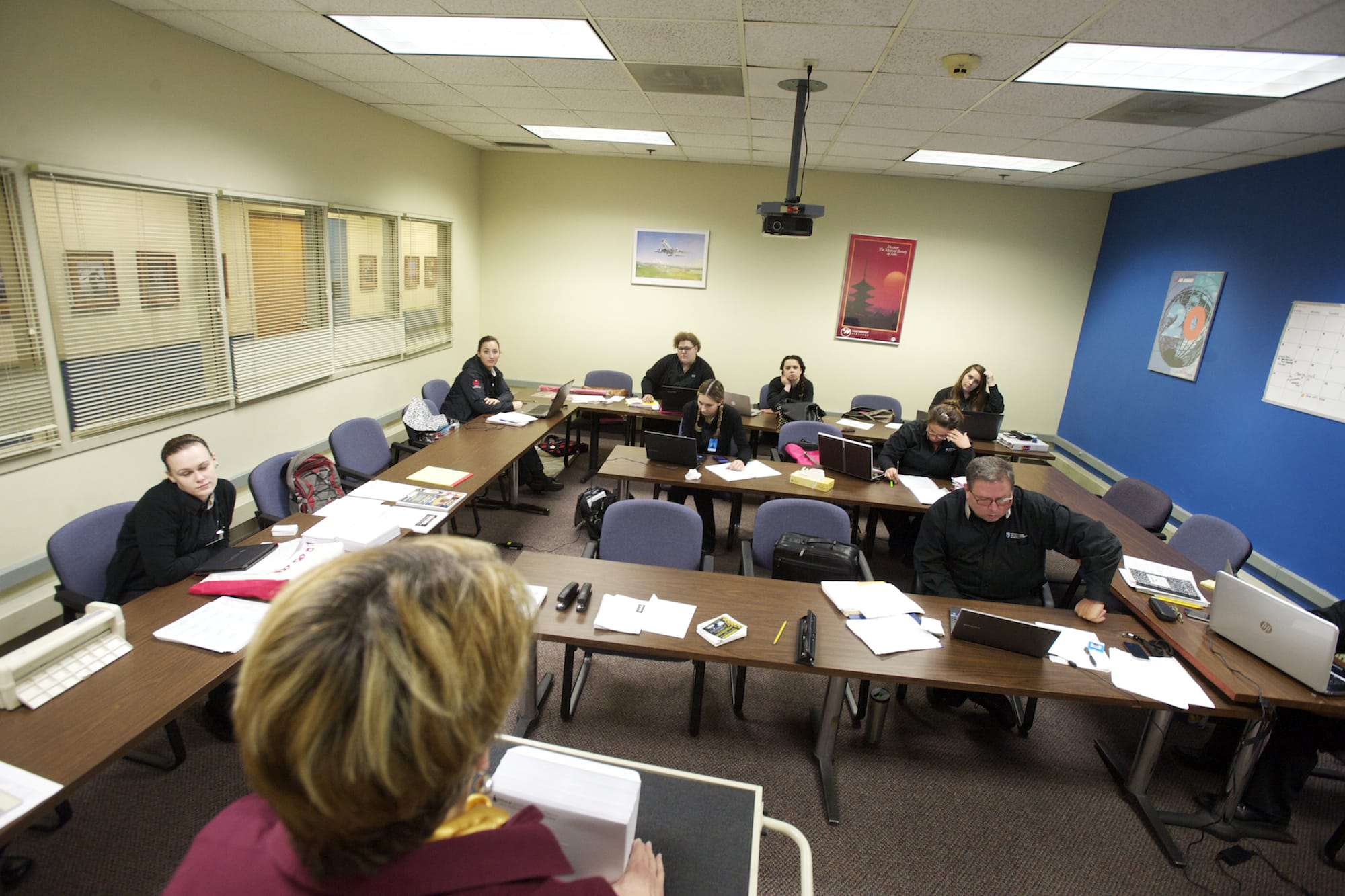“It’s all about money. It’s all about what you charge for your service,” Miller said. “When we sit around the table and talk about the tuition levels, we talk about what’s right for the customer. You shouldn’t charge more than what you need to pay your bills and make a reasonable profit.”
Graduates should be able to get “a job that pays enough money to retire that debt,” Miller said.
Debt vs. earnings
Tuition for the school’s five-month airline travel specialist program is $7,300, with another $114 for books and $4,995 for room and board. The program graduated 260 student in 2012, who earned a median annual salary of $14,450, according data reported to the U.S. Department of Education. The graduates’ median annual loan payment of $825 a year ate up 100 percent of their discretionary income. But the program’s “annual earnings rate,” a ratio of debt payments to income, was 5.71, which meets the proposed threshold of 8 percent. Nineteen percent of the graduates defaulted on their loans.
Everest College, which has a campus in Vancouver with 300 students, might have a tougher time meeting the rules. Among the programs it offers is a 36-week medical assistant certificate program. The cost: $16,300 for tuition and fees, and another $2,173 for books and supplies. The median debt among students is $9,454 in federal loans and $2,294 in private loans. System-wide, students who complete the program go on to earn $12,816 a year, with the loan payments eating up 100 percent of their discretionary income, according to U.S. Department of Education 2012 gainful employment data. The loan default rate for the program is 29.96 percent, and the annual earnings rate is 9.61. A spokesman for Everest College did not return The Columbian’s call for comment.



